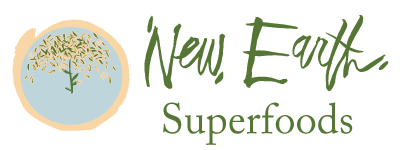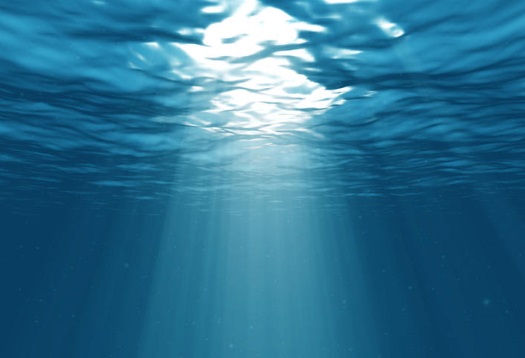Uncategorized
Sea Plankton
NEW EARTH SUPERFOODS PRESENTING “PACIFIC SEA PLANKTON”
Recent research has revealed the tremendous antioxidant value that is contained in Sea Plankton. This certainly is not accidental as Sea Plankton is the original life form preceding all living creatures on our planet as we all came originally from the ocean. Our bodies contain mostly water, with the genetic make up of our origin, the ocean.
Commonly kelp or seaweed are washing up on the shore and people have heard of nutritional value and benefits of these. The difference of these and most other algae to Sea plankton is that Sea Plankton feeds almost all the fish in the ocean in some way or another and contains incredible amounts of nutrients. A particular and special strain of Sea Plankton that is grown in Hawai, also called Pacific Sea Plankton, contains an incredible nutritional profile with all the essential amino acids, the healing fatty acids (omega 3’s — EPA/DHA), plus a wealth of vitamins, key minerals and trace elements, rare antioxidants, phospholipids, electrolytes, nucleic acids, enzymes, and co-enzymes.
Unlike other algae based super foods like Chlorella, this single celled organism does not have a shell and is immediately absorbed once it touches your tongue.
Unfortunately, most fish oils contain substantial amounts of toxins, such as mercury and PCBs
As an alternative, Sea Plankton is clearly one of the most effective ways to complement and enhance our bodies need to protect and repair our body.
Omega-3 has been used for years for chronic inflammation with great promise, yet it certainly did not show the results we all hoped for. This is because research now shows that the previously believed benefits of Fish oil are based an inferior source of Omega-3. Fish oil is a very questionable source of Omega-3. Most Fish oil sold today is processed from fish guts, skin, heads, fins, trimmings and blood in industrial fishmeal rendering plants where farmed fish by-products and small wild fish are ground up as feed for farmed fish. It is an industrial by-product contaminated with toxins. It first must be refined using high heat under pressure with harsh solvents. Fish oil is highly processed and far from natural.
Fish oil is contaminated with the toxins present in the water of the fish farm and wild marine environment, such as PCB, dioxin, flame retardant, mercury, lead, herbicides, pesticides, as well as the antibiotics, growth hormones and food coloring.
Highly questionable methods are commonly used to detox contaminated fish oils like extreme heat processing or Molecular Distillation including harsh solvents such as hexane or ethanol. The results is a highly altered product that our body just cannot utilize properly anymore. It became so foreign that it actually can do more harm then good as not all the toxins can be completely removed from the fish oil. Rancidity is a common result as the oils oxidize resulting in fishy smell and difficulty to digest. So the oil must be deodorized; lemon flavor may be added. Unfortunately, rancid oils are easily concealed in gelatin capsules, and they are pro-inflammatory when consumed.
These negative effects of oil refining might explain why the daily serving amount of fish oil is so high, typically in the thousands of mg. Yet, only 100mg a day of Sea plankton has tremendous amounts of Omega-3. Also, sea plankton lipids are much more absorbable than highly processed oils.
Medical research has clearly demonstrated that an increased amount of Omega-3 EPA/DHA relative to Omega-6 in our diet shows great benefits. Omega-3 deficiency has been linked to chronic inflammation. Advances in science and extensive clinical research have established a link between chronic inflammation and a broad range of degenerative conditions such as heart disease, cancer, immune dysfunction, arthritis, obesity, diabetes, psychiatric disorders and more.
Omega-3 DHA/EPA originates in sea plankton. Small wild fish obtain Omega-3 by consuming sea plankton, the sole producer of Omega-3 EPA/DHA. The Omega-3 fatty acids are transported through the marine food chains to become enriched in the fats of fish, marine mammals and other higher animals.
Sea Plankton is a truly fantastic source for Omega-3 but also for many other important antioxidants. It contains great amounts of vitamin B-12 and also great antioxidants like Astaxanthin etc.
Sea Plankton further contains a wide range of essential fatty acids in a complete, balanced array of natural phytochemicals and micronutrients like the Omega-3 fatty acids: Docosahexaenoic acid (DHA) Eicosapentaenoic acid (EPA) Alpha linoleic acid (ALA)
Omega-3 DHA EPA, Omega-6, vitamins, rare trace minerals & elements, antioxidants, carotenoids, pigments, amino acids, enzymes, polyphenols, chlorophyll, phytonutrients, lean protein, and much more. The nutrients are bound to naturally occurring emulsifiers, thereby enhancing balanced cellular nutrition with optimal absorption.
Scientists speculate that billions of years ago the introduction of tiny organisms with the ability to convert sunlight, warmth, water and minerals into protein, carbohydrates, vitamins and amino acids marked the beginning of life. Called Sea Plankton, these tiny creatures are the basis of all other life forms on planet earth.
Sea Plankton remains on earth to this day as the first and most efficient food producer on the planet. From this tiny organism, the most basic of foods, the chain of life extends through all the plants and animals, finally bringing life to all humanity itself. Sea Plankton is a uniquely developed Hawaii-bred ‘Micro algae’. This special Sea Plankton is the most potent source of ‘Beta Carotene’ and is one of the richest sources of GLA, Vitamin B-12, Chlorophyll and protein in the world.
Sea Plankton is the purest of foods. Its position at the base of the food chain makes this ‘Sea Plankton Live Food’ the purest food on earth. As the very first to convert sunlight, warmth, water and minerals into substances of life, it produces highly nutritious, easily assimilated food without contaminants. It is 85 to 95% digestible.
GROWN IN SEA-WATER PONDS IN HAWAII
This ‘Live Food’ has several environmental advantages over other products. Grown in sea-water ponds on the Kona Coast of Hawaii, Pacific Sea Plankton is a totally unique strain of micro algae. This is in direct contrast with most micro algae products which are grown in ‘interrupted’ seasonal cycles in fresh water ponds. Pacific Sea Plasma’s growth cycle has been uninterrupted since 1981 allowing it continuous evolutionary development in the unrelenting Kona sunshine.
Additionally, it is grown in nutrient rich ‘Sea Water’ brought from 2,000 feet below the ocean’s surface. As a result, Sea Plankton is totally free of any pesticides or contaminants. And finally, all nutrients in Sea Plankton are kept fresh and vital through a new ‘Low-oxygen” drying technology that exists nowhere else in the world today.
AS A SOURCE OF BETA-CAROTENE
Easily the most potent source of ‘Beta Carotene’ available in the world, Sea Plankton offers 3 times the potency of ‘Spirulina’. It has 10 times the concentration of carrots. Ten grams of Sea Plankton provides well over an amazing 23,000 IU (14mg.) of beta carotene or 460% of the US RDA of Vitamin A activity. High doses of Vitamin A supplements may be toxic, the Beta Carotene in Pacific Sea Plankton is always safe because the body only converts beta carotene to Vitamins as needed.
AS A FOOD SOURCE B-12 AND B-COMPLEX VITAMINS
Pacific Sea Plankton joins ‘Spirulina’ as the richest source of Vitamin B-12. It is higher than beef liver, chlorella or sea vegetables. Because B-12 is difficult to get from plant sources, Pacific Sea Plankton is the ideal natural choice.
10 grams of Pacific Sea Plankton contain 20 to 30 micrograms (mcg) of B-12, and from 330 to 530% of the US RDA Thiamin and Riboflavin. Other B vitamins, B-6, Niacin, Biotin, Panthothenic Acid, Folic Acid, Insoitol, and vitamin E are present in smaller amounts.
AS A SOURCE GAMMA LINOLENIC ACID (GLA)
Pacific Sea Plankton is one of the richest food sources of GLA besides mother’s milk. GLA is an essential fatty acid which means that it is good fat and absolutely essential to health. GLA is the precursor to the body’s master hormones that control many functions. Although essential, the body is unable to synthesize its own GLA and relies on adequate food sources. 10 grams of Pacific Sea Plankton contains 100 milligrams (mg) of GLA.
DIRECTIONS FOR TAKING PACIFIC SEA PLANKTON
New Earth Superfoods is offering Sea Plankton in basically two forms – one in powder and the other in a further enhanced cultured form of Coconut Kefir.
Suggested Dosage: Take a tsp daily with a large glass of liquid or even better take an ounce of our Sea Plankton Kefir whenever you feel low in energy or stamina.
Each individual is unique. Some people are more toxic and have longer standing health concerns than others. The amount that you use depends on your own unique individual needs. Your servings will change as your body condition changes.
In some cases its advisable to double or triple the initial dosage for faster results. Reminder: This is a whole food made from 100% Pacific Sea Plankton. Our products work nutritionally and are not stimulants. Any results are nutritional and in no way mean to imply that you should not see a doctor.
PACIFIC SEA PLANKTON NUTRITIONAL SPECIFICATIONS
GENERAL COMPOSITION
FATTY ACIDS
(Total 48mg/g)
Protein 60%
Carbohydrates 19% Omega 6 Family
Lipids 6% Gamma Linolenic (GLA) 10 mg
Minerals 8% Essential Linoleic 11 mg
Moisture 7% Dihomogamma Linolenic .53 mg
Omega 3 Family
VITAMINS Alpha Linolenic 14.5 mcg
Docosahexaenoic (DHA) 14.5 mcg
Beta-Carotene 2.8mg Monoenoic Family
Vitamin A (as Beta Carotene) 4,676 iu Palmitoleic 1.98 mg
B1 Thiamine 34 mcg Oleic .17 mg
B2 Riboflavin 33 mcg Erucic .024 mg
B3 Niacin 207 mcg
B6 4.4 mcg OTHER FATTY ACIDS
B12 2.2 mcg
Vitamin E (d-a tocopherol) 15 mcg Palmitic Acid 20 mg
Inositol 680 mcg Myristic Acid 1.08 mg
Biotin .323 mcg Stearic Acid .068 mg
Folic Acid .3 mcg Arachidic Acid .048 mg
Pantothenic Acid 4 mcg Behenic Acid .048 mg
Lignoceric Acid .024 mg
MINERALS
Maganese 26 mcg PIGMENTS AND ENZYMES
Calcium 4 mg
Magnesium 4.8 mg Chlorophyll 7.9 mg
Iron 1.06 mg Beta-Carotene 2.8 mg
Phosphorus 10.4 mg Total Carotenoids 5.4 mg
Potassium 15.4 mg Phycocyanin 111 mg
Sodium 7.3 mg Superoxide Dismutase .4 mg
Zinc 12 mcg Pacific Sea Plankton is also a rich source of enzymes, RNA, DNA, sulfolipids, glycogen, and other potentially important nutrients.
Boron 10 mcg
Copper 1 mcg

